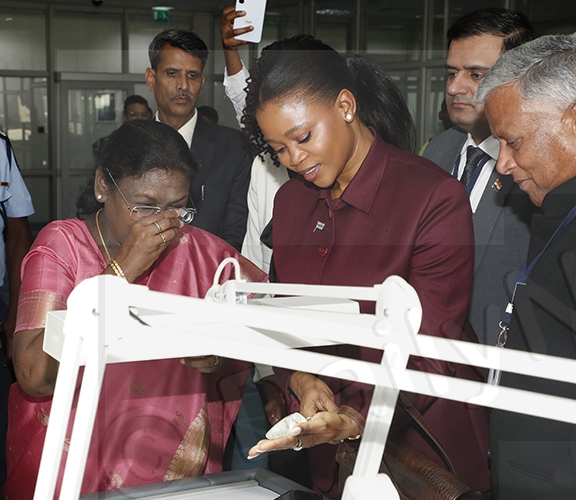OKACOM promotes improved livelihoods
07 Dec 2020
Okavango River Basin Water Commission (OKACOM) executive secretary, Mr Phera Ramoeli has called for a balance between competing water uses in the sectors of irrigated agriculture, tourism, energy generation while meeting and maintaining environmental needs and integrity.
Giving a keynote address during the Maun/Okavango climate-smart horticulture open day at Mawana village, he said competing needs were complex at both national and transboundary level given the changing climate patterns versus national development agendas among water course member states.
In the context of a changing climate, Mr Ramoeli revealed that the governments were faced with a challenge to ensure food security, adding that the challenges had been exacerbated by Coronavirus. He said the recent pest outbreak also interrupted food supply chains and affected important economic sectors such as tourism which is the core economic activity for the Okavango.
He stressed the need to adapt and adopt climate-smart agricultural practices such as water conservation practices, improving irrigated agriculture water use efficiency, soil management, using improved seeds, and building capacity to increase agricultural outputs.
The practices, he said did not only apply to Botswana but rather in the whole Cubango-Okavango River Basin as an approach to sustainable Transboundary Water Resources Management.
Mr Ramoeli revealed that by improving water use efficiency, member states could address water scarcity in a changing environment due to a changing climate while meeting economic development needs.
He acknowledged that in Botswana there was a recommendation that demonstration projects should focus on enhancing horticultural production in Maun/Okavango through climate-smart practices which linked horticultural production with the upmarket tourism value chain and other local markets.
The project was implemented by OKACOM in collaboration with the ministry Agricultural Development and Food Security to improve food security.
Mr Ramoeli expressed gratitude that the project had produced expected results and stated that going forward, OKACOM and the agriculture ministry would engage on how to strengthen local farmers association and how the role of line government institutions such Local Enterprise Authority would be explored.
“This will enable farmers to operate cooperatively, establish coordinated crop schedules, operate on business model and lobby for access to better markets including government procurement programs,” he added.
He said the demonstration projects had improved the socio-economic status of local communities across the basin with minimum adverse impacts and enhanced protection of the basin ecosystem.
For his part, North West District acting agricultural coordinator, Mr Kenneth Mabote attested that the demonstration project had made a huge difference in the horticulture industry.
He acknowledged that the project had empowered local farmers to increase horticultural crop yield through alternative climate-smart agricultural practices.
He said farmers had started production and secured a market for the high-value crops adding that out of 19 farmers, five had already sold their harvest to the local market.
Some of the produces include lettuce, chill pepper, strawberries, herbs, broccoli, brinjal, tomatoes and cucumber among others.
“This project has strengthened the capacities of local farmers to produce high-quality products to meet the need of the high-end tourism market in the Okavango Delta.
It has encouraged farmers to explore the opportunities for high-value addition in horticulture production,” he added. Ends
Source : BOPA
Author : Esther Mmolai
Location : Maun
Event : Open Day
Date : 07 Dec 2020





